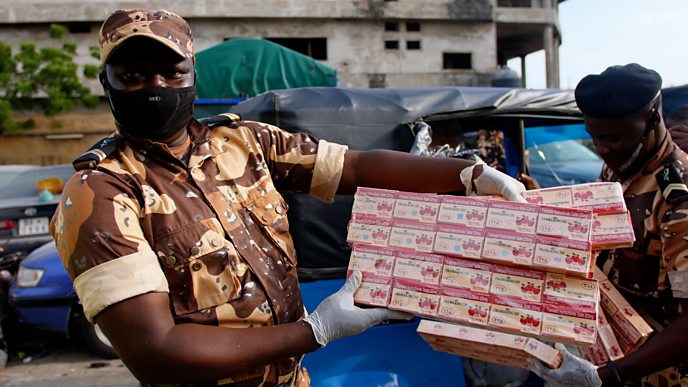
Beninese authorities have intercepted a convoy carrying counterfeit medicines and other prohibited goods at the Tchikandou border in the Borgou department.
The operation took place in the early hours of August 12-13, 2025, around 4 a.m., when a team from the Tchikandou border police station discovered six motorcycles heavily loaded with illicit cargo.
According to the digital platforms of the Republican Police, the drivers fled at the sight of officers, abandoning both their vehicles and the goods.
An on-site inventory revealed 400.9 kilograms of counterfeit pharmaceutical products, including boxes of Diclofenac and Analgin, forty injectable solutions, and 176.5 kilograms of unauthorized veterinary products. Authorities also seized cosmetic items, traditional medicines, clothing, fashion accessories, electronic equipment such as flashlights and Bluetooth players, solar panels, school supplies, and essential household goods.
Under the instructions of the Departmental Director of the Borgou Republican Police, all seized items and motorcycles were secured and placed under seal. A formal investigation has been launched to identify the owners of the shipment and dismantle the smuggling networks responsible for distributing these counterfeit and prohibited products.
“The operation demonstrates our commitment to protecting public health and safety by preventing the circulation of counterfeit medicines,” a police spokesperson said.
“We are working to ensure those responsible are brought to justice and that such networks are disrupted.”
Authorities have repeatedly warned that the circulation of fake medicines poses serious health risks, including the potential for treatment failures and dangerous side effects. Veterinary products and traditional pharmacopoeia items sold illicitly can also threaten animal health and the broader food supply.
The Tchikandou seizure underscores ongoing challenges in border security and the fight against illegal trade in Benin. Law enforcement officials say that continued vigilance and community cooperation are essential to curbing the flow of counterfeit goods and protecting citizens from harm.



